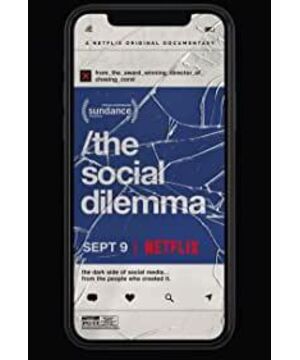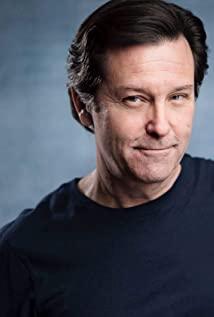Generally speaking, the behaviors we tweet, like, and share on social media are always influenced by the friends, information, and personal values around us. But the film thinks from the perspective of social media platforms, and digs out an important reason that everyone may overlook - intelligent algorithms. After watching the entire documentary, I recall the "smart advertisements" that are pushed every day. How many people have the topics that come to their minds every day that are determined by algorithms? As a result, I can't help thinking about whether I have fallen into the "smart trap" of the platform, and how to fight against the power behind the screen.
1. What is Smart Advertising
Smart advertising uses algorithm technology to collect and analyze user data to push advertising information tailored to users, so as to achieve the purpose of increasing advertising revenue. From the perspective of the film, such smart advertising is an important tool to maintain the survival of these Internet giants, and it is the Internet business model. There is a sentence in the film that intuitively describes the business model based on smart advertising: If you're not paying for the product, then you are the product. In other words, the way Internet companies make money is to sell users. Far beyond the secondary sales theory in the traditional media era, in the secondary sales business model, the media unit first sells media products to end consumers, and then sells consumer attention to advertisers or advertisers. process. Now, social media platforms are able to achieve user growth by capturing individual social networks and activating network nodes. Then platform companies can not only sell users' attention to advertisers, but also sell our personal information to data companies to assist in decision-making in various fields and obtain greater profits. From the user's point of view, on the one hand, we get free services, such as connecting with others for free on social media, free access to various information and functions, but on the other hand, the price we need to pay is personal information.
Second, the two sides of intelligent advertising
A Silicon Valley person in the film said: "Algorithms are opinions embedded in code, and algorithms are not objective." The issue of technological neutrality has been widely debated, ranging from the polarization of the 2016 US election, the 2019 Hong Kong riots, In the various conspiracy theories during the new crown epidemic, we can see that technology is not neutral, but has built-in values of power behind it. Currently, smart advertising is moving towards addictive, manipulation-oriented applications. The business model of Internet platforms based on smart advertising is evolving into a business model that uses fake news for profit.
After watching the video, what impressed me most about the negativity associated with smart advertising is the autonomy that smart advertising takes away from people. Humans and algorithms are in a state of information asymmetry. We are giving up our decision-making power to the algorithm. People are unconsciously manipulated by the platform. Our judgments and behaviors seem to be determined by personal subjective consciousness, but the background may have been predicted and influenced by the algorithm. This is eroding the bond by which society works - rational communication. Under the algorithmic mechanism, the Internet tends to be constructed to create a unique information world for each person. Everyone gets different information, and we tend to believe and think that what is presented to us is reality. But in reality, we only recognize a small part of it, ignoring the bigger picture of reality. Everyone in their own filter bubble is stubborn about the "truth" they believe in. The polarized views continue to expand, the phenomenon of polarization of views is common, and social consensus will be more difficult to achieve. This would be a "devastating" blow to the realization of democracy. Democracy requires citizens to look at things from each other's perspective, but now we are increasingly surrounded by our own filter bubbles. Democracy relies on people sharing facts with each other, but we now live in a parallel universe without communication. Smart advertising, especially the personalized push mechanism controlled by capital, is undermining the efforts to build a democratic system over the years, making it difficult to truly realize democracy.
Although the film focuses on the issue of "smart traps", we cannot dismiss it completely as poison. It is true that the demand for profit from Internet companies has driven the development of smart advertising, but I believe that its creators did not create smart advertising with the purpose of making people addicted, group loneliness, and polarizing opinions. Smart advertising has also brought us great convenience. In the era of information explosion, without smart advertising to filter information for us, we will fall into a breakdown of attention. Smart advertising acts as a filter to a certain extent, helping people improve decision-making efficiency. It can filter out useful information for behavioral decision-making in a large droplet of information. However, how to avoid being "deceived" by the built-in value of the algorithm, how to perceive the clearer stakeholders behind smart advertisements, and how to judge the authenticity of the information pushed by individuals requires various efforts.
3. Jump out of the trap and reconstruct humanistic care
(1) Create space for dialogue and promote public dialogue
Sunstein's "sidewalk" model. The "sidewalk" mode of the network refers to the construction of information public areas, breaking the closedness of users' personal information space, and weakening the recommendation function of "relevant recommended objects of interest", so as to expand the field and scope of users' attention. This mode can reduce or curb the tendency of one-sided and extreme thinking. For example, improving the form of the algorithm. The film mentioned that the platform technology side makes a little change to the algorithm, although it will make shareholders dissatisfied, but it can make the world a better place. I also think that, rather than the interests of hundreds of shareholders, Internet platforms should choose to think from the standpoint of more than one billion people in the world. Algorithms can be roughly divided into three modes: supervised, semi-supervised, and unsupervised. In the unsupervised mode, the algorithm will become more and more intelligent based on the growing data, but on the other hand, there may be only a few people in the entire technical department who understand how to judge the algorithm, which will eventually lead to the loss of control of the technical black box. Deepen the degree of manipulation. Perhaps the Internet platform should think about how to coordinate the relationship between humans and machines in the process of processing data, so as to avoid further tearing apart the society without supervision.
(2) Strengthening legal supervision
What surprised me was that the Silicon Valley bosses in the film did not have great expectations for the supervision of the enterprise platform itself. On the contrary, I hope that the government, as a visible hand, can strengthen relevant legal supervision and restrict the current pursuit of interests that ignore ethics and human nature. What I can think of is the EU General Data Management Regulation, which gives users the power to manage their own data. my country has also gradually introduced relevant laws in recent years, but what the actual situation is, I think it will take a long time.
(3) Awakening of personal consciousness and promoting media literacy education
An important reason why we are vulnerable to manipulation is that we are in a state of "collective unconsciousness". In the past, the perception of "technology neutrality" will make us relax our vigilance when contacting intelligent push information, and thus rely too much on it. In the film, the big guys in Silicon Valley provide a lot of meaningful operations, such as turning off software notifications, using a search engine (qwant) that does not save your data, and educating children about algorithms from an early age to avoid addiction...
View more about The Social Dilemma reviews











